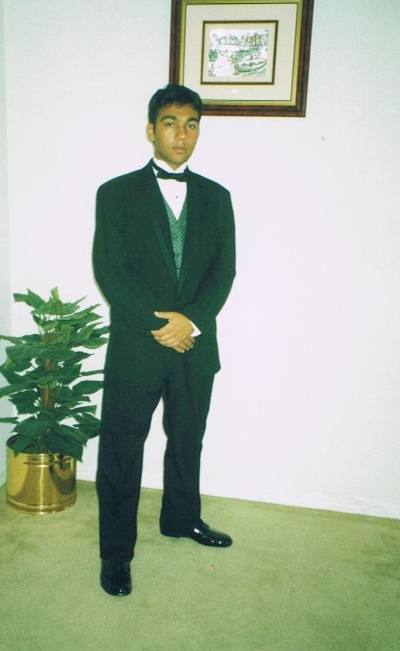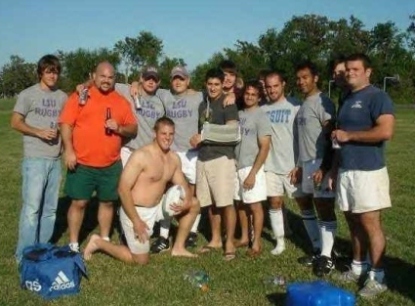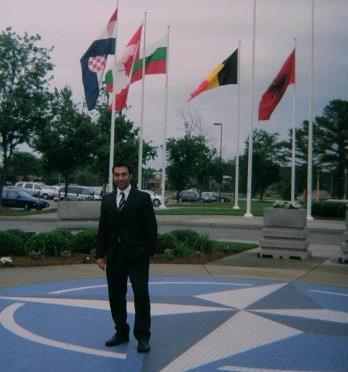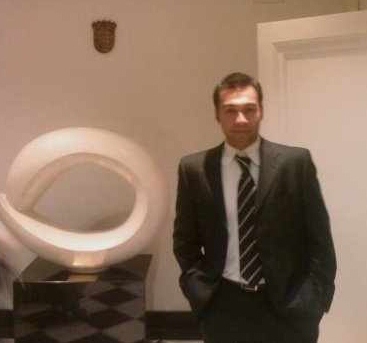"Winding Road: My Immigration Story" by Viktor Kopic (Part II)
 Wednesday, January 23, 2013 at 12:05AM
Wednesday, January 23, 2013 at 12:05AM My immigration story would reach a new level of complication following the events of September 11, 2001. With the perpetrators of 9/11 having been able to obtain visa’s for the United States, many politicians deemed it necessary to add further scrutiny, more background checks, and additional requirements in order to obtain a Green Card. In the process this would lead to a backlog in the immigration system as well as prolong the waiting period for applicants.
In the first three to four years following the events of 9/11, as many immigrants (especially those of darker skin, from the Middle East, or those of Muslim of Sikh belief may) may attest to, it was near impossible to get pulled over by a police officer without being asked “where are you from?” or “are you Arab?” or be selected for greater scrutiny in security checks at airports, or even museums for that matter. While the majority of people I knew, or those who were around me, were still welcoming and friendly towards me as a foreigner, it was a hard not to take note of moments such as getting randomly pulled out of line at a airport security checkpoint, made to take off your shirt behind make-shift cubicles used for “privacy” while standing next to other folks that look “similar” to you, and get questioned and searched. After a few years however, the tensions and these types of situations, would begin to decrease.

Dressed up for my highschool senior prom... something my folks used to joke about as being another step to becoming more "Americanized".
The changes and extension in the Green Card application process also led to some individuals trying to take advantage of immigrant workers. For example, when my father wanted to depart from New Orleans for Houston, to take a job at a German shipping company’s office in Houston, his now former boss threatened to use "legal action", in the hopes that it would scare him into wanting to stay in New Orleans and work at the same company. While in her case it did not work, there have been other situations where immigrants have chosen to remain where they are working, even if they are unhappy, out of fear of any repercussions by their employers.
Now living in Baton Rouge and going to Louisiana State University, I began to face new challenges in my immigration status. My status as a foreign student at LSU was complicated. Given that I was a resident of Louisiana and I had come into the U.S. as a minor with an H-4 visa, I did not have to apply for an F-1 visa (one of the main types of visa’s given to foreign students). Had I been arriving from outside of the U.S. and just starting to apply for university, then I would be required to have applied for an F-1 visa.

Third from the right: With some of my teammates back in the day, when I was on the LSU Rugby team.
However, what our lawyer in Houston had failed to tell us was that, by the age of 21, no matter if I held residency within Louisiana and had been legally inside the U.S. with an H-4 visa, I would also have to apply for an F-1 visa to stay in status legally (as an adult child, you cannot be dependent on an H-1B visa holder). It was not until we asked the lawyer, only a few months before I turned 21 did she bother to say, “oh, you didn’t know?” and when asking for what would be some other solutions to the situation in case if the application did not go through or was too late… “just get married, it’ll make it easier.” To avoid repercussions with the INS and to be able to complete my studies successfully, I changed my status from the H-4 visa to the F-1 student visa.
Furthermore, I also had to face certain challenges as an immigrant in the career path that I chose. As a political science major at LSU, it was a goal of mine to work within the U.S. intelligence community or the State Department. While I knew certain opportunities, like being the president of the United States, were out of question; other jobs, where logically speaking you would think they would value someone of multinational origins and multilingual skills were also out of reach. To make matters worse, I would not realize this until my senior year in college. Luckily though, I had found out about the think-tank world.

At the NATO Allied Command Transformation Base during a visit to gather research for work.
With the potential of a job opportunity in Washington, D.C., based off a project I was working on, with one of the most respected think-tanks in the world, I also applied for what is called the Optional Practical Training status in the hopes that if the project went well, the company would support me with an H-1B. The OPT is a period during which undergraduate and graduate students with F-1 status who have completed or have been pursuing their degrees for more than nine months are permitted by the USCIS to work for at most one year on a student visa – for which you are given a work card. While the project I had been working on was developing smoothly, the recent global recession had dried up the funds necessary to complete the project, and the company had quickly realigned its priorities. This left me in limbo for a period, and disillusioned, given the political atmosphere in D.C. at that time.

At an art exhibit event at the Croatian embassy in D.C..
While I continued to use what was left on the time period of my OPT to do some miscellaneous tasks at this company, I began job hunting in the hopes of finding another company or organization willing to support me with an H-1B. The best opportunity that I had gotten was through one of my then-boss’ connections. The interview went great and the gentleman had even said that I was a “shoo-in” for the position. However, talking over the phone the next day with the gentleman, when I mentioned the support I needed for an H-1B, he kindly let me know that they would not be able to do so “due to the strains and time consumption, and other aspects of the process,” and from there wished me farewell and all the best. The feeling that I remember most after having gotten that phone call was that, in some cases, I was being looked more in terms of who I am rather than what I have to offer. Feeling out of luck, I decided it was time for a change...

Reader Comments